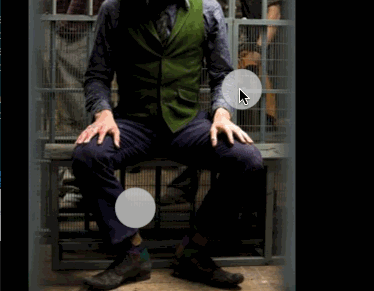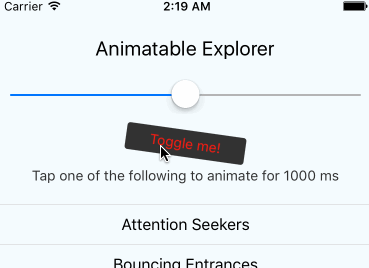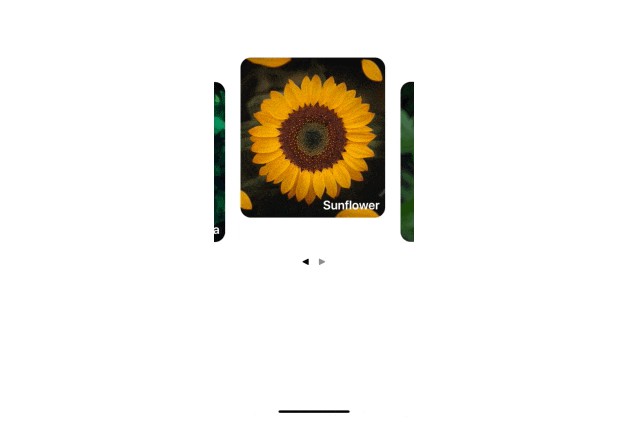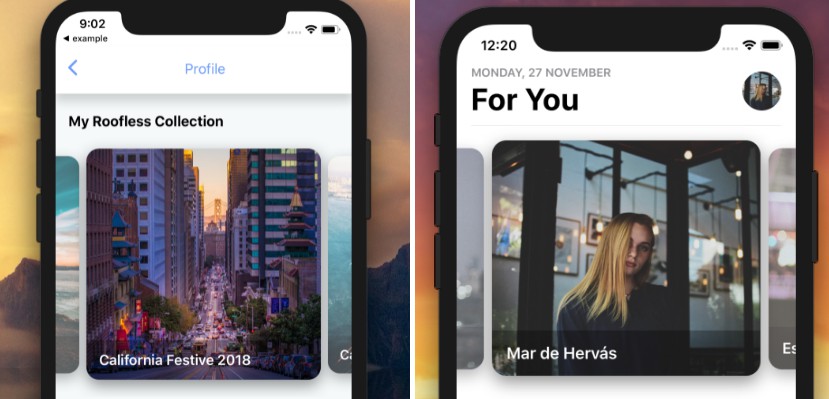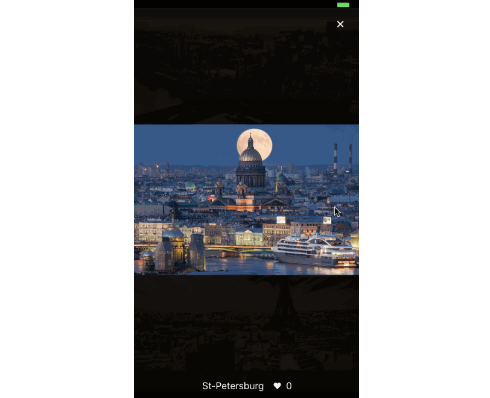react-native-image-carousel
Image carousel with support for heading, captions, fullscreen mode, image swiping and pinch-to-zoom in fullscreen mode.
Supports both Android and iOS. Zoom feature works on iOS only.

Installation
npm install --save react-native-image-carousel
Usage
import ImageCarousel from 'react-native-image-carousel';
export default class App extends Component<any, any, any> {
_imageCarousel: ImageCarousel;
componentWillMount() {
(this: any)._renderHeader = this._renderHeader.bind(this);
}
_renderHeader(): ReactElement<any> {
return (
<TouchableWithoutFeedback onPress={this._imageCarousel.close}>
<View>
<Text style={styles.closeText}>Exit</Text>
</View>
</TouchableWithoutFeedback>
);
}
_renderFooter(): ReactElement<any> {
return (
<Text style={styles.footerText}>Footer!</Text>
);
}
_renderContent(idx: number): ReactElement<any> {
return (
<Image
style={styles.container}
source={{ uri: urls[idx] }}
resizeMode={'contain'}
/>
);
}
render(): ReactElement<any> {
return (
<View style={styles.container}>
<ImageCarousel
ref={(imageCarousel: ImageCarousel) => {
this._imageCarousel = imageCarousel;
}}
renderContent={this._renderContent}
renderHeader={this._renderHeader}
renderFooter={this._renderFooter}
>
{urls.map((url: string): ReactElement<any> => (
<Image
key={url}
style={styles.image}
source={{ uri: url, height: 100 }}
resizeMode={'contain'}
/>
))}
</ImageCarousel>
</View>
);
}
}
Check full example in Example folder.
Props and methods
Every prop is optional.
| Name | Type | Description |
|---|---|---|
activeProps? |
Object |
Props of each child when in fullscreen mode. (For a component to fill the screen activeProp's style must be flex: 1). This prop is ignored in case renderContent prop is provided. |
activeComponents? |
[ReactElement<any>] |
Active components' bounds will be used for opening/closing fullscreen mode animations. If not provided, the immediate children are used. |
zoomEnabled? |
boolean |
true by default, if false, children are not zoomable. |
hideStatusBarOnOpen? |
boolean |
true by default, if false, status bar does not fade out on open. |
renderContent? |
(idx: number) => ReactElement<any> |
Component to render in fullscreen mode for the given index. |
renderHeader? |
() => ReactElement<any> |
Component to render at the top when in fullscreen mode. |
renderFooter? |
() => ReactElement<any> |
Component to render at the bottom when in fullscreen mode. |
onIdxChange? |
(idx: number) |
Fired on index change in fullscreen mode. |
onOpen? |
() => void |
Fired on fullscreen mode open. |
onClose? |
() => void |
Fired on fullscreen mode close. |
react-native-image-carousel also provides two methods for opening and closing the fullscreen mode respectively:
open(startIdx: number), close.
